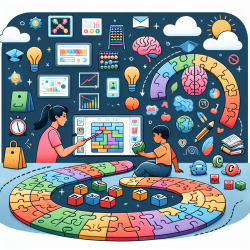Dyslexia, often recognized as a language-based disorder, can present significant challenges for children, especially when it co-occurs with Developmental Language Disorders (DLD). As practitioners, understanding the nuances of these conditions and implementing data-driven strategies can significantly enhance the outcomes for affected children. Drawing from the comprehensive research presented in the article "Understanding Dyslexia in the Context of Developmental Language Disorders" by Adlof and Hogan, this blog aims to provide actionable insights for improving practitioner skills.
Key Findings and Clinical Implications
The research highlights three critical clinical implications for working with children with dyslexia in school settings:
- Language Deficits Beyond Phonology: Children with dyslexia, with or without comorbid DLDs, often exhibit language deficits beyond phonological challenges. This includes difficulties in vocabulary, syntax, and discourse.
- Targeted Interventions: Interventions should be tailored to address a child's specific strengths and weaknesses across all language domains, rather than focusing solely on diagnostic labels.
- Long-Term Language Acquisition: Children with dyslexia are at risk for slower language acquisition over their lifetime, necessitating ongoing support and monitoring.
Practical Steps for Practitioners
To effectively support children with dyslexia and DLD, practitioners can take the following steps:
- Comprehensive Language Assessments: Advocate for and conduct thorough assessments that cover multiple language domains, including phonology, orthography, morphology, semantics, syntax, and discourse processing.
- Collaborative Interventions: Work closely with classroom teachers, reading specialists, and other educators to develop and implement interventions that address all areas of language and literacy.
- Utilize Compensatory Techniques: Encourage the use of audiobooks and other tools that provide access to rich language experiences without the burden of decoding, helping to mitigate the effects of reduced reading exposure.
Encouraging Further Research
While current research provides valuable insights, there is a need for further longitudinal studies to track the development of language skills in children with dyslexia over time. Understanding the long-term impact of early language deficits and the role of genetic and environmental factors can help refine intervention strategies and improve outcomes.
To read the original research paper, please follow this link: Understanding Dyslexia in the Context of Developmental Language Disorders.










